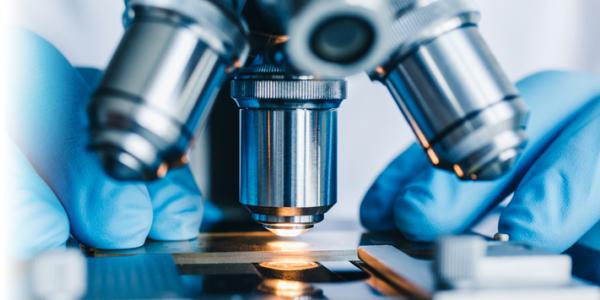
We now have two vaccines. In a remarkable race against time, drug makers Pfizer/BioNTech and Moderna have both produced a COVID-19 two-dose shot, approved by the U.S. Food and Drug Administration (FDA).
While most of us want the vaccine, there is some hesitancy. The accelerated timeline has raised concerns about how rigorously the vaccine has been scrutinized. Historically, vaccines have spent years in the development stage. The vaccines arrived in less than a year at “warp speed” and received “emergency use authorization.” It’s natural to have a few qualms.
Are We Rushing Things at the Expense of Safety and Efficacy?
The short answer is no, according to Ryan Schroeder, director for clinical research at El Camino Health’s Taft Center for Clinical Research. With clear and compelling data drawn from well-designed clinical trials, the vaccines have shown to be safe and have surpassed expectations for effectiveness.
In studies with thousands of participants, with strict protections in place, the vaccine is 95 percent effective at preventing COVID-19. In comparison, the annual flu vaccines most of us get every fall are between 40 to 60 percent effective at preventing seasonal flu.
Based on his years of experience administering clinical trials, Schroeder sees the vaccine as an impressive scientific achievement.
How Did It Happen So Fast?
Vaccine development is complex science and a lengthy process. Scientists working to shorten the timeframe were poised to make breakthroughs. The COVID-19 outbreak hastened the revolution.
The Global Health Emergency Has Inspired Global Collaboration
The scientific community usually comes together to leverage knowledge in what becomes a competitive environment. But the devastating scale of the worldwide pandemic changed that. The global collaboration around COVID-19 has been phenomenal. Research data is shared with everyone — across countries and companies, in a blend of private and public effort. When scientists, pharmaceutical companies and regulatory agencies around the world work together, innovation is accelerated.
Speedy Vaccine Development Was Already Underway
Even before the pandemic, scientists were working to create swifter pathways to vaccine development. They were studying process models that would enable coordinated, focused efforts. They were exploring the use of innovative, flexible technology — all to compress the timeline for development, testing and manufacturing. The vaccine arrived in record time because these advancements were already gaining ground.
Testing and Manufacturing Worked in Parallel
In the case of the search for a COVID-19 vaccine, the term “warp speed” is a bit misleading. It sounds like we’re speeding along a linear path. What it actually refers to is achieving rapid results by working previously linear steps in parallel.
Working in parallel means that drug-makers were developing an improved manufacturing process while the clinical trials were underway with the appropriate patients in each cohort. While it can be compared to building the plane while flying it, that’s how responsible science works. It allows scientists to switch gears quickly when new data requires it, adapting to the new data across multiple trial phases.
Does the Authorization for “Emergency Use” Mean the FDA Gave Its Approval Before All the Facts Were In?
No. The FDA’s authorization was expedited, but with complete data and a great deal of confidence in the final product. Both vaccine makers adhered to the FDA’s strict clinical trial requirements through all three trial phases with careful design and rigor.
Ample data is publicly available and supports that the vaccine is safe and highly effective in preventing COVID-19. Pfizer's Phase 3 results were subjected to an external peer review and published in the New England Journal of Medicine. During a peer review process, unbiased thought leaders weigh in on the validity of data. It’s fundamental to academic science and healthy for the public.
El Camino Health: Optimism and Confidence Based On Early Involvement
The clinical research team at El Camino Health joined the fight against COVID-19 in March 2020, unusual for a community hospital. But El Camino Health is unusual in that it boasts the talent, leadership and strong research culture normally found at academic hospitals.
Back in March, El Camino Health activated a private study with drug-maker Gilead in clinical trials with remdesivir, the first anti-viral medication to get approval by the FDA to help fight the virus that causes COVID-19. Dan Shin, MD, infectious disease specialist, was a thought leader from the beginning of the crisis, working with the scientific community to drive studies and share results. El Camino Health is taking part in three more studies with Gilead for remdesivir therapies.
Ganesh Krishna, MD, interventional pulmonologist, is serving as a principal investigator in a Pfizer COVID-19 treatment study. In fact, the El Camino Health clinical research team was first in the world to treat a patient under the Pfizer study. Such is our sense of urgency to protect the community and contribute globally to meaningful research.
Critical care nurses working with COVID-19 patients take part in research studies as well. Their collaboration is crucial to the hospital’s efforts. The front-line nursing teams have been energized by the arrival of a vaccine that will help them get ahead of the virus.
As the Pandemic Continues So Does Our Commitment
In order to inoculate billions of people against COVID-19, it’s going to take multiple vaccines developed with multiple different approaches and scientific models. Several more vaccine candidates from other makers are already in the final trial phase, getting ready for their approvals.
While there will be many more COVID-19 clinical trials, El Camino Health researchers are very selective about which studies are best for their patient population. Right now, they are inspired by and have confidence in the vaccines. Because, said Schroeder, "When so many in our community want to find innovative ways to help end this pandemic, El Camino Health's physicians, research team and clinical staff feel fortunate to bring its patients new treatment options and contribute to research on the global stage. Vaccine research and manufacturing has moved at an incredible pace and we are encouraged by the data that supports the FDA's emergency use authorization."

